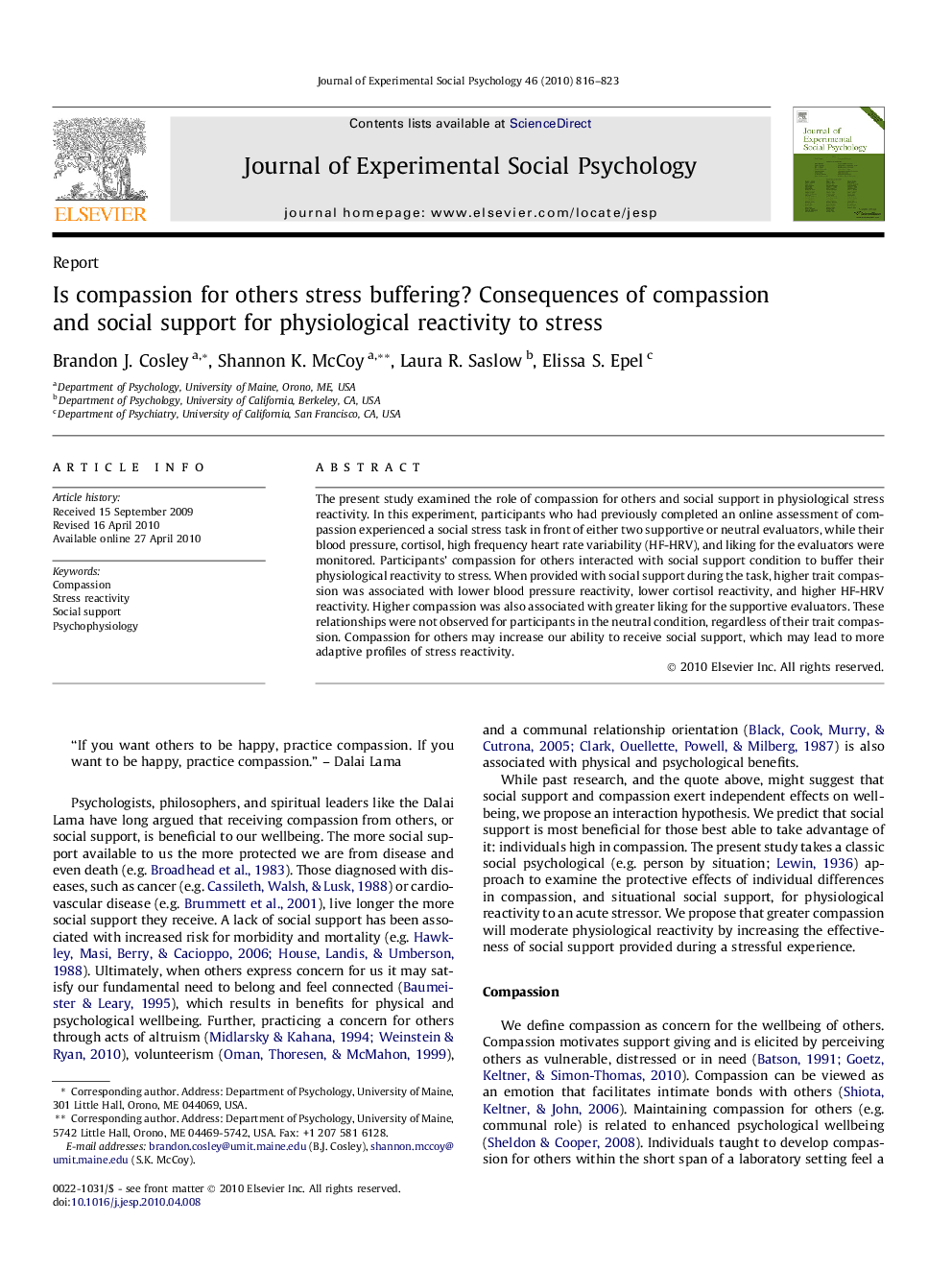| Article ID | Journal | Published Year | Pages | File Type |
|---|---|---|---|---|
| 948659 | Journal of Experimental Social Psychology | 2010 | 8 Pages |
The present study examined the role of compassion for others and social support in physiological stress reactivity. In this experiment, participants who had previously completed an online assessment of compassion experienced a social stress task in front of either two supportive or neutral evaluators, while their blood pressure, cortisol, high frequency heart rate variability (HF-HRV), and liking for the evaluators were monitored. Participants’ compassion for others interacted with social support condition to buffer their physiological reactivity to stress. When provided with social support during the task, higher trait compassion was associated with lower blood pressure reactivity, lower cortisol reactivity, and higher HF-HRV reactivity. Higher compassion was also associated with greater liking for the supportive evaluators. These relationships were not observed for participants in the neutral condition, regardless of their trait compassion. Compassion for others may increase our ability to receive social support, which may lead to more adaptive profiles of stress reactivity.
